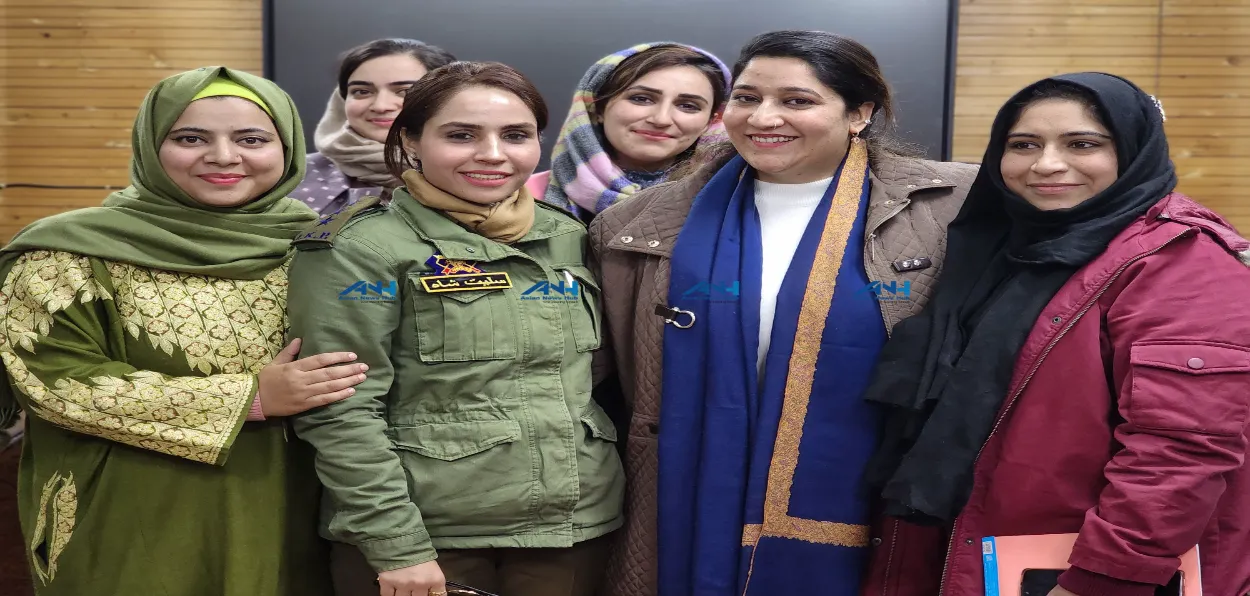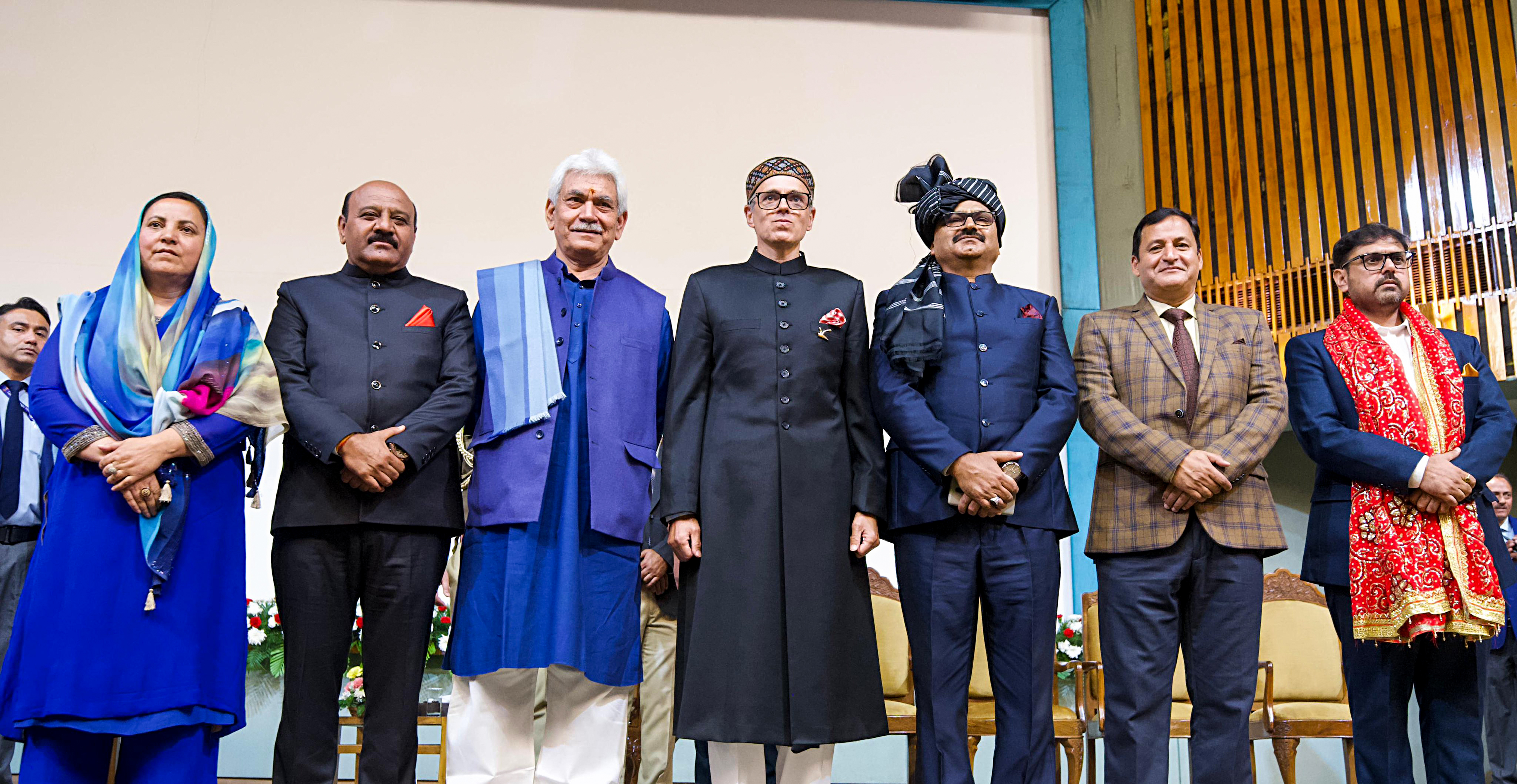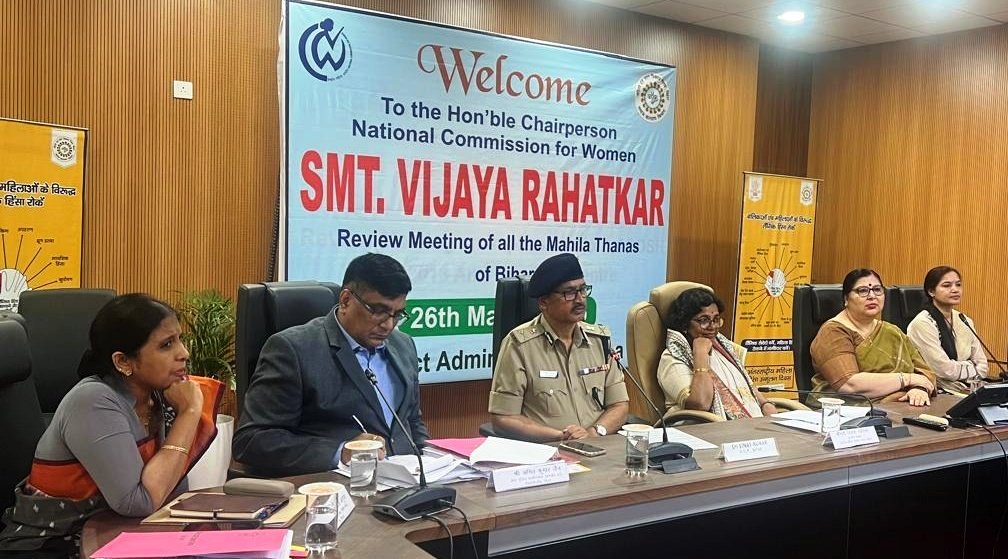
Ashima Kaul
When Zainab (Name changed) walked into the Special Cell for Women in Pulwama, she was hesitant and unsure if she would be heard. She wanted to file a case against her husband, who was having an affair. He often resorted to physical abuse, and her in-laws were also harassing her.
Like the 9,791 other survivors of violence since 2021, Zainab was offered support by highly trained social-psycho counselors and social workers from the Tata Institute of Social Sciences (TISS), who work with the Special Cells.
However, both the survivors of violence and the counselors—two in each of the 20 districts of Jammu and Kashmir—now face an uncertain future as the Memorandum of Understanding (MoU) with the National Commission for Women (NCW) is set to end on March 3i. The NCW has been funding TISS, which runs this project.
“I appeal to the NCW to extend the funding for another year until the process is institutionalized by the Union Territory government,” says Mantasha Binti Rashid, a civil servant and a women’s rights activist and founder of Women’s Collective, in Srinagar.
Mantasha Binti Rashid, JKAS
She wrote on X, “More services are needed. One Stop Centres and Special Cells operate on different models. Even together, they cannot fully address gender-based violence. Allocating one or two crores annually for women’s issues is negligible given the government’s commitment to women’s rights.”
The NCW, Government of India, in collaboration with TISS, has been implementing the Violence Free Home – A Woman’s Right project. This initiative began in Delhi in 2009 and was later expanded to seven states—Odisha, Bihar, Punjab, Madhya Pradesh, Assam, Meghalaya, and Tamil Nadu—from 2015 to 2021. The NCW has been supporting Special Cells for Women in the Union Territories of Jammu & Kashmir and Ladakh since 2021.
The project provides high-quality psycho-social and legal support services to survivors of gender-based violence through trained social workers embedded within the police system.
These professionals receive specialized training and ongoing guidance from experienced coordinators and faculty members. Currently, the project is being implemented across all 20 districts of Jammu & Kashmir and two districts of Ladakh in collaboration with the Police and the Social Welfare/Social & Tribal Welfare Departments of the respective UT governments.
Between November 1, 2021, and January 31, 2025, social workers from the Special Cells for Women have reached 9,791 survivors of violence in Jammu & Kashmir and 469 survivors in Ladakh, offering them psychosocial and legal support.
Additionally, social workers have conducted or participated in over 1,581 awareness and training programs, reaching approximately 47,430 individuals and stakeholders (with an average of 30 participants per program) to promote the services of the Special Cells and educate communities about legal rights and protective laws for women and children. The Special Cell
The Special Cells for Women initiative was first introduced in 1984 by TISS in collaboration with the Mumbai Police. Since then, various state governments have adopted and institutionalized the approach to fit regional contexts. Currently, 527 Special Cells for Women operate within police stations across India, including Maharashtra (144), Gujarat (85), Haryana (22), Rajasthan (246), and Delhi (30). Disturbed by the NCW’s decision to discontinue the project, women’s rights activists across the country have launched a signature campaign appealing to the Chief Minister of Jammu and Kashmir to intervene. “The abrupt closure of the Special Cells for Women in Jammu and Kashmir on March 31, 2025, due to the discontinuation of NCW funding, would be a severe setback in the fight against gender-based violence, leaving countless women without structured protection,” the campaign states.
The Joint Director of Planning, Social Welfare Department, Government of Jammu and Kashmir, has also written to Ms. Meenakshi Negi, Member Secretary of NCW, requesting the continuation of the Special Cells for Women for at least another year. The letter highlights that the Special Cells initiative was launched in 2021 through a partnership with NCW, TISS, the Police, and the Social Welfare Department to address cases of domestic violence, child abuse, and workplace harassment.
Since its inception in Jammu & Kashmir in November 2021, the project has been providing essential psychosocial and legal support. The letter further emphasizes that the institutionalization process requires interdepartmental consultations, financial approvals, and administrative formalities, all of which need sufficient time to ensure a seamless transition to a fully institutionalized framework.
Supporting the cause, Sakina Ittoo, Minister of Education, Health & Medical Education, and Social Welfare, raised the issue in the Legislative Assembly. She also posted on X, “I have formally written to NCW (GoI) requesting an extension of at least one year for the Special Cells for Women in J&K. The support these Cells provide is crucial. However, alongside these Cells, one one-stop center (OSCs) also plays a vital role by providing legal aid, counseling, medical assistance, and shelter to women in distress in J&K.”

Sakina Ittoo (Extreme left) with the Omar Abdullah cabinet
Both models are equally important. “While OSCs quickly ‘dispose’ of cases and provide shelter to destitute women, the Special Cells work within the criminal justice system, engaging in long-term rehabilitation by helping survivors secure employment and regain independence,” explains Saima Shah, Coordinator of Special Cells in Kashmir Division. She adds, “OSCs and Special Cells operate in solidarity and coordination. When a woman requires shelter, we refer her to OSCs, and when she needs police assistance or legal aid, they refer her to us.”
Recognizing the sensitivity of this issue in a region recovering from years of protracted violence and conflict, TISS has written a letter to the Home Secretary about the project's success across the country and the quality of services provided through the Special Cells.
It also references multiple external evaluations conducted over the years, including the most recent one by the Quality Council of India (QCI) in 2022–23. This evaluation, commissioned by the NCW, emphasized the need to scale up and expand the Special Cells for Women nationwide. It also underscored the project’s profound and positive impact on survivours of violence, reinforcing the importance of preserving and strengthening this initiative.
In Jammu and Kashmir, particularly Kashmir, where police stations were once heavily guarded and the idea of entering them was met with fear and hesitation, social workers from the Special Cells have played a transformative role in reshaping these spaces.
For years, the region’s history of conflict, heavy militarization, and deep-seated distrust in law enforcement made it especially difficult for women to seek justice, particularly in cases of domestic violence, sexual assault, and other forms of gender-based violence.
 NCW Chief Vijay Rajatkar reviewing the functioning of Women police stations in Bihar
NCW Chief Vijay Rajatkar reviewing the functioning of Women police stations in Bihar
Many survivors feared retaliation from their perpetrators or social stigma from their communities, discouraging them from reporting abuse. Recognizing these challenges, the Special Cells for Women, through the dedicated efforts of trained social workers, worked to bridge this gap by humanizing police spaces and making them more approachable for survivors.
These social workers provide a crucial buffer between law enforcement and victims, ensuring that women feel safe, heard, and supported when seeking justice. They have also conducted extensive outreach efforts in local communities, building trust and raising awareness about legal rights, available support systems, and the importance of reporting crimes.
Over time, these efforts have yielded significant results. More women have come forward to report abuse, knowing they have a safe space within police stations where they will be treated with dignity and respect. The presence of Special Cells has not only increased confidence in the justice system but also led to better coordination between survivours, legal aid providers, and law enforcement, facilitating a more survivour-centric approach to justice. However, these hard-earned gains now stand at risk of being undone if
However, these hard-earned gains now stand at risk of being undone if the Special Cells are shut down or discontinued due to a lack of funding. Without these specialized interventions, survivors may once again find themselves trapped in cycles of abuse with nowhere to turn. The absence of trained social workers in police stations could lead to a resurgence of fear and hesitation among women seeking justice, undoing years of progress in creating a more responsive and inclusive justice system.
The rebuilding process in Jammu and Kashmir, particularly in its journey toward peace and stability, must incorporate a gender-sensitive approach that prioritizes women’s safety, empowerment, and access to justice. A society recovering from decades of conflict cannot afford to sideline the rights and protections of half its population. Gender-based violence is not just a women’s issue—it is a broader social justice and human rights issue that directly impacts the overall well-being and development of communities.
Ensuring the sustainability of the Special Cells is not just about extending financial support; it is about institutionalizing gender-responsive mechanisms within the law enforcement and social welfare systems. This requires strong political will, long-term policy commitments, and multi-stakeholder collaboration, including the active involvement of local government bodies and civil society organizations.
ALSO READ: Kashmir: Parsa's free Iftaari and service to all during Ramzan wins hearts
For real progress to be made, the government must recognize that an investment in women’s safety and justice is an investment in the broader peace-building and development agenda of the region. By securing the future of the Special Cells and expanding their scope, Jammu and Kashmir can take a meaningful step toward a more just, equitable, and peaceful society where every woman feels safe and empowered to seek justice without fear.
Ashima Kaul is an indendendent journalist and founder of Yakjah NGO that works for peace and harmony in Jammu and Kashmir
